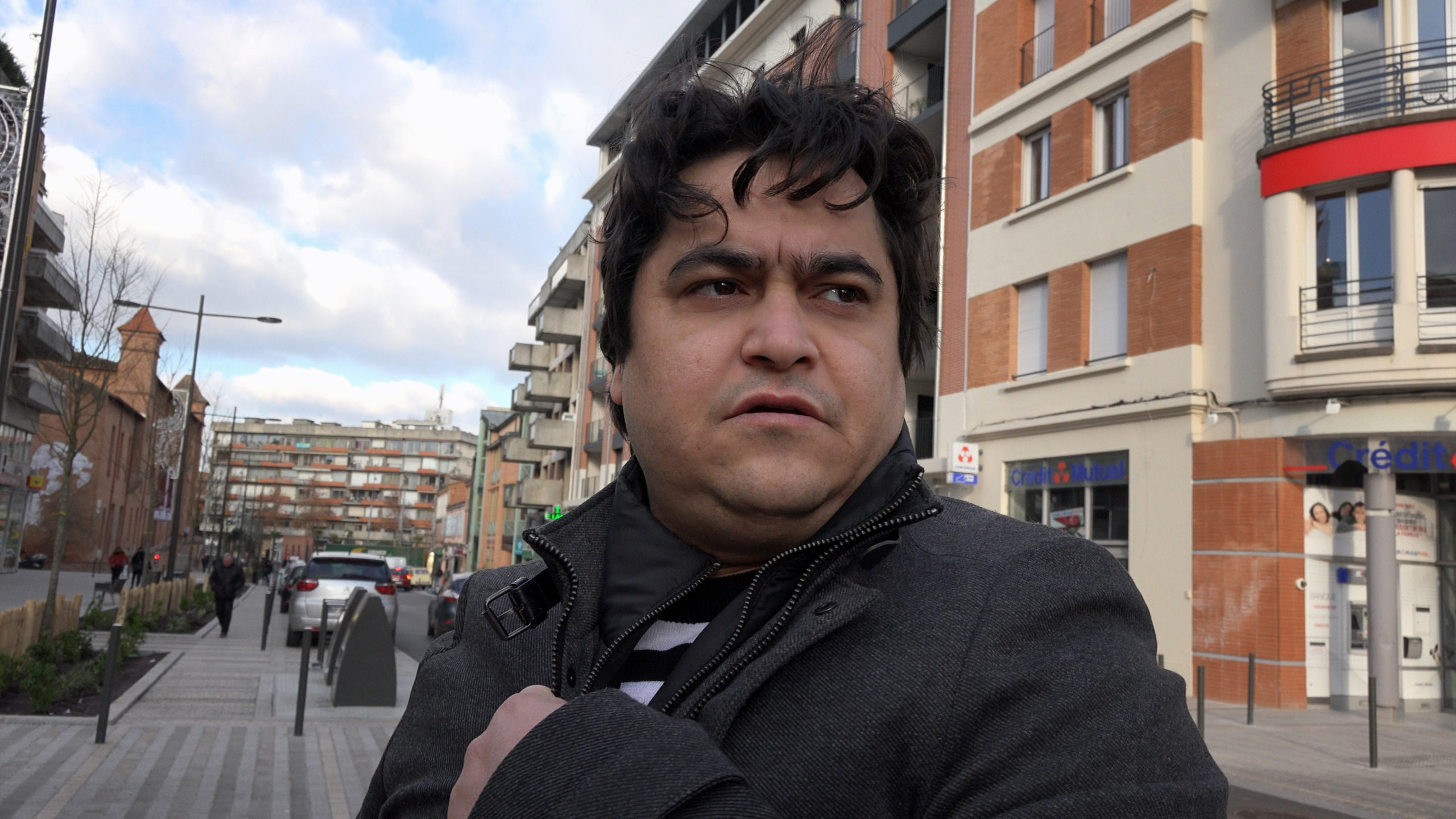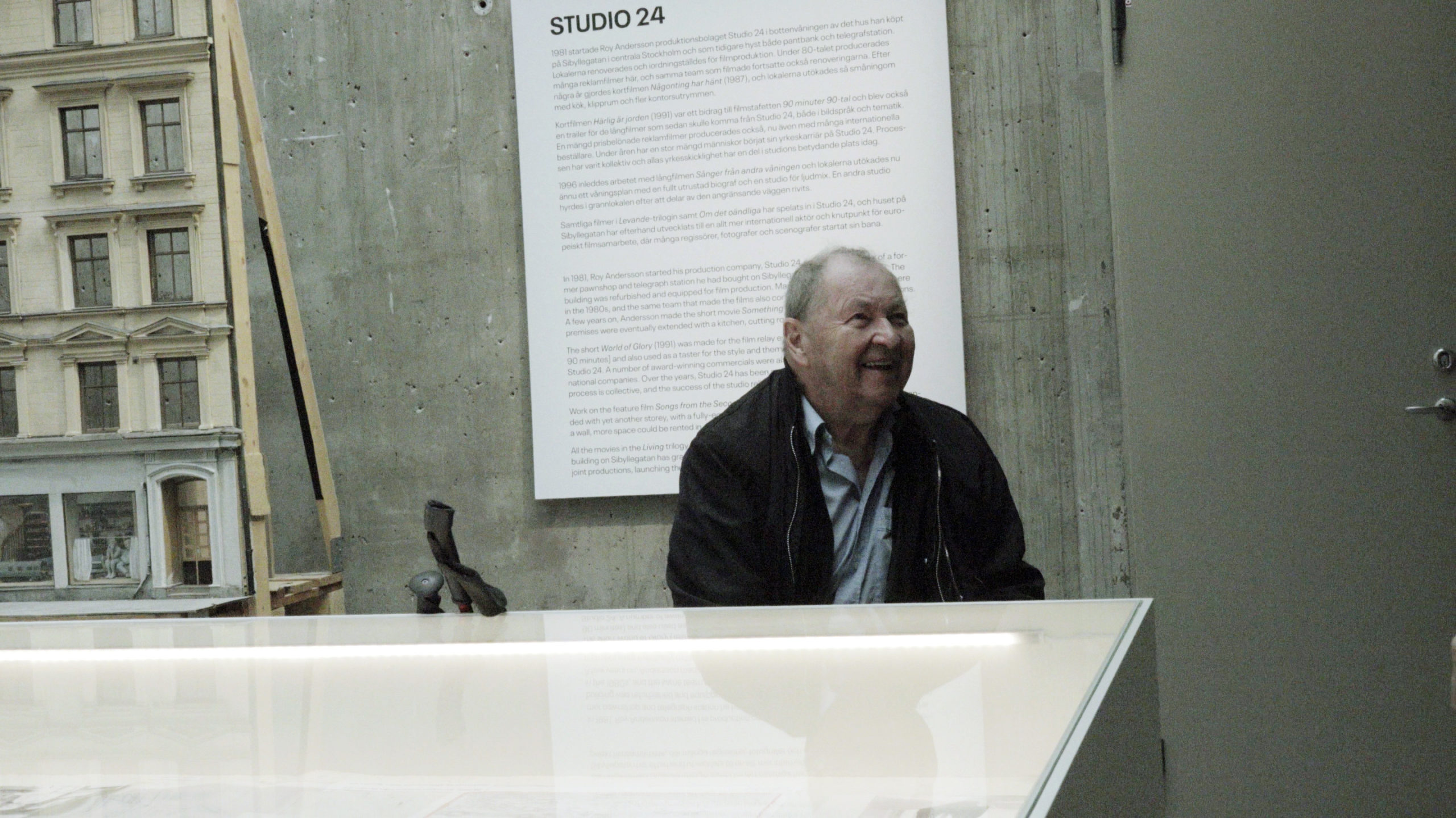In the film by his niece, Johanna Bernhardson, Roy Andersson is not the renowned and award-winning master of cinema but one of the brothers burdened with alcohol addiction. In Nahid Persson’s shocking story about an Iranian dissident, the director not only exposes the truth about the ruthless Iranian regime but also shatters the illusion of a secure Europe. Two outstanding – albeit entirely different – Swedish documentaries will have their premiere at the 64th edition of the Krakow Film Festival, spanning the end of May and the beginning of June.
Swedish cinema awaits us in its strong, uncompromising form. In the gripping Son of the Mullah, Iranian-born director Nahid Persson depicts a well-known dissident from Tehran who cannot feel secure even in exile. Meanwhile, in The Andersson Brothers, Johanna Bernhardson turns the camera towards her uncle, the outstanding director Roy Andersson, to narrate an uncensored story of her family and the way it was scarred by animosities, ambition, and alcohol – says Anita Piotrowska, film critic and curator of the documentary section at the Krakow Film Festival.
Although both titles hail from Sweden, their themes and characters transcend local boundaries. The issue of alcoholism, affecting the lives of entire families, is exceptionally universal, while the story of Roohollah Zama highlights how easily one can fall victim to manipulation.


When Politics Intersects with Religion
Nahid Persson comes from Iran but has been living in Northern Europe for years, creating acclaimed socially and politically involved films about her homeland. The director closely follows the activists combating the regime, supporting anti-government protests and her demonstrating compatriots. When she came across Roohollah Zama, residing in France, she couldn’t help but be intrigued, especially considering that this man, challenging religious leaders and exposing their criminal activities, was the son of one of them. Having lived in exile for years, the dissident created a safe European haven for his family. However, his media presence and the filmmaker’s involvement did not go unnoticed by the regime.
Son of the Mullah is not just a tale of an oppressive government masking its unlawful activities with religion but also a story about the lack of security, with one of its sources being the rampant spread of misinformation.
When Addiction Stays In the Family
There were four of them. The eldest, Roy, became the biggest star, an outstanding figure in European cinema, garnering major awards at international festivals. Then there was Ronny, the black sheep of the family, the ambitious Kjell, who admired his eldest brother, attempting unsuccessfully to measure up to him, and Leif, the director’s father. Once very close, they drifted apart over time. The filmmaker, herself a mother of three daughters, tries to bring them back together while addressing an issue that has affected members of her family for generations.
Johanna Bernhardson, despite the theme of addiction, crafts an incredibly sensitive portrait of the titular brothers. She doesn’t strip them of their humanity, nor does she show them in embarrassing moments, or seek cheap sensationalism. On the contrary, she accompanies them through various moments in life, primarily engaging in conversation and seeking to understand them. There are journeys through time, materials shot when the director worked in her talented uncle’s famous Studio 24, recordings on 8mm tape captured by teenage Kjell, as well as nostalgic albums with photos of the four innocent boys enjoying time together, away from domestic problems.
Twelve recent films from around the world will compete for the Golden and Silver Horns in the International Documentary Competition. The selection team, led by Festival Director Krzysztof Gierat and Documentary Section Curator Anita Piotrowska, will make the final decisions. Who knows, there might also be a Polish production among the selected titles. We will find out very soon.
Passes for the 64th Krakow Film Festival are available here!
Krakow Film Festival is on the exclusive list of qualifying events for the Oscars® in the categories of short film (live action, animated, documentary) and documentary feature, as well as a recommending event for the European Film Awards in the same categories.
The 64th Krakow Film Festival will be held in cinemas from 26 May to 2 June and on KFF VOD from 31 May to 16 June 2024.